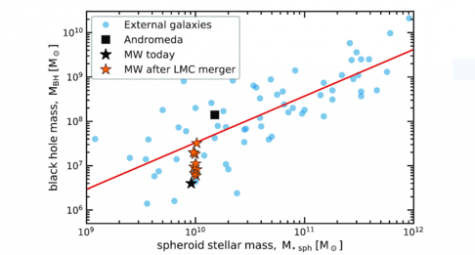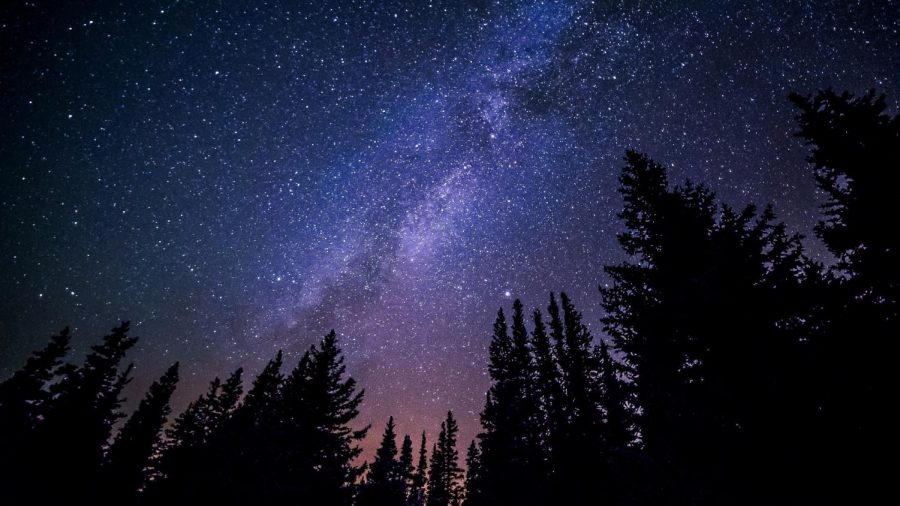Collision Coming to the Galaxy
A photograph of the Milky Way as seen from Earth.
The Solar System is our haven, but new research shows our haven may be thrown out of the Milky Way Galaxy.
It has long been predicted that the Milky Way Galaxy will collide with the Andromeda Galaxy in eight billion years. Now, a study published in the Monthly Notices of the Royal Astronomical Society found that the Large Magellanic Cloud is going to collide with the Milky Way in two billion years.
The Large Magellanic Cloud has been orbiting the Milky Way for roughly 1.5 billion years as a small satellite galaxy, or at least what was thought to be small. In reality, the galaxy is larger than astronomers thought, which means it is losing energy as it circles the Milky Way. This means that the Large Magellanic Cloud will collide with the Milky Way when its energy is low enough.
“Gravity causes galaxies to collide. Even though the universe is expanding galaxies still have a gravitational force. This force pulls the galaxies toward each other causing a collision,” said sophomore Sabah Haque.
Every galaxy merges with galaxies similar to the Large Magellanic Cloud, but the Milky Way has only merged with small galaxies. Since the Milky Way has only ever merged with small galaxies in the time astronomers have measured, only calculated predictions can tell us what will happen.

This diagram shows the mass of the Milky Way’s black hole before and after the collision with the Large Magellanic Cloud.
The collision could also fundamentally change the Milky Way Galaxy. The black hole at the center of the Milky Way is undersized compared to the black holes of other, similarly sized galaxies like Andromeda. Astronomers believe that the collision with the Large Magellanic Cloud will make the black hole larger, so it would be a more average black hole. But why is a more average galaxy good?
Though 2 billion years seems so far away, compared to the 13.8 billion years the universe has existed, or the 8 billion years it will take for the Milky Way to collide with the Andromeda Galaxy, 2 billion years is nothing.
Every galaxy collides with others. With every collision there is risk, but there is also reward. The Milky Way and the Large Magellanic Cloud might collide in 2 billion years, and it might throw the Solar System out, only time can tell.







